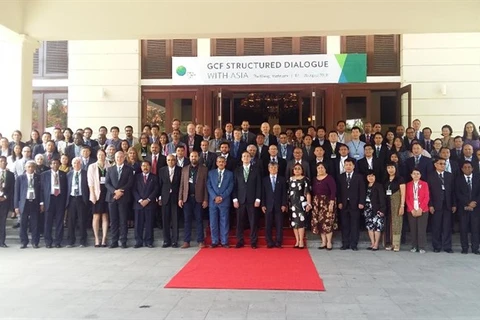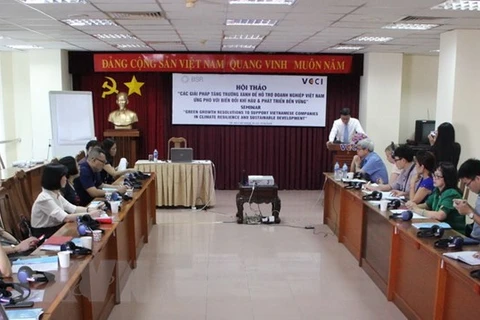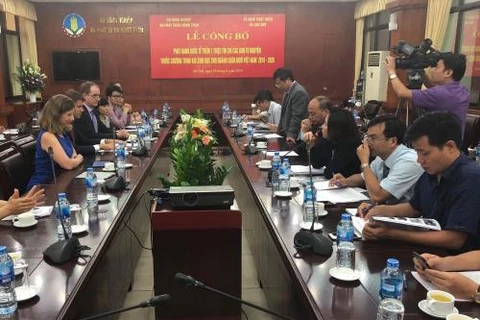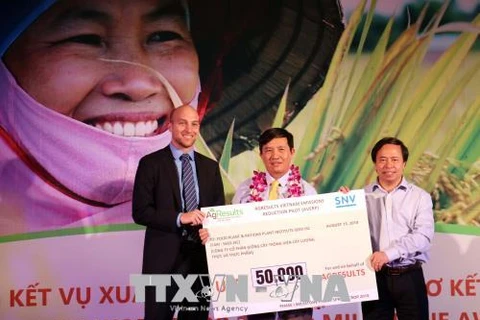HCM City (VNA) – Ho Chi Minh City will push ahead with solutions to reduce greenhouse gas (GHG) emissions, joining the nation’s efforts to realise the Paris Agreement on climate change.
An interim report meeting on the project to support the planning and implementation of nationally appropriate mitigation actions (SPI-NAMA) in HMC City was held on August 28.
Nguyen Huy Phuong, a representative of the HCM City climate change office, said the city’s GHG reduction plan currently covers the fields of planning, energy, transport, industry, water management, waste management, agriculture, healthcare, construction, and tourism.
He noted that in order to boost GHG reduction activities, HCM City will continue to use clean and environmentally friendly fuel for buses and launch two bus rapid transit routes. It will also replace existing road lights with LED bulbs and solar-powered lighting devices. Additionally, waste-to-energy technologies will be applied at local landfill sites, and biogas will be collected from animal manure.
Stressing the need to reduce GHG emissions in the energy sector, Huynh Ngoc Phuong Mai, Director of the HCM City Centre for Environmental Technology and Management, called for policies to be issued that promote the use of solar energy in industrial sectors. It is also necessary to encourage investors to carry out renewable energy projects and sell electricity at reasonable prices, said Mai.
Makoto Kato, a specialist at the Japan International Cooperation Agency (JICA), said HCM City and other localities can reduce GHG emissions by cutting down electricity and fuel used in buildings, install solar power systems on high-rise rooftops, and develop the bus rapid transit (BRT) and urban railway systems to replace personal vehicles.
They should also make use of landfill gases to produce electricity, create organic fertiliser, and recycle solid waste, he noted.
He added that with JICA’s cooperation, HCM City will issue policy tools in its climate change action plan for 2021-2025 to improve energy use efficiency in buildings towards forming a low-carbon city with sustainable development.
To realise the Paris Agreement on climate change, Vietnam has committed to reducing 8 percent of its GHG emissions, equivalent to about 62 million tonnes of CO2, in the sectors of energy, transport, agriculture, and waste management between 2021 and 2030. –VNA
VNA
























